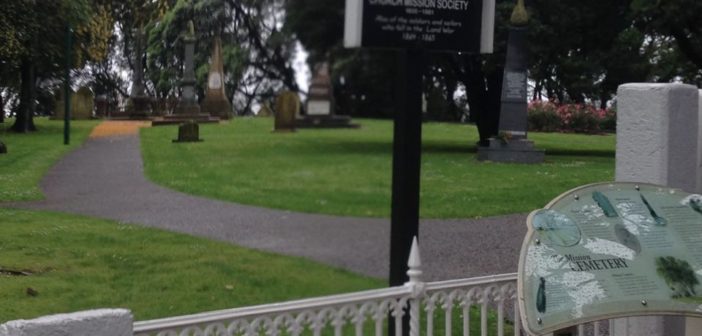Don Brash speaks with the modulated tones of an older, well-educated white-male New Zealander. He doesn’t want to hear the seconds of Te Reo Maori introduction which now precede Radio New Zealand radio programmes. He wants translations: he doesn’t know what “rahui” means. If ever there was a cogent public argument for sharing knowledge of the culture of New Zealand Maori and introducing their language to the increasing ethnically and culturally diverse residents of New Zealand, ironically, Brash is putting it forward with all the intellectual English articulateness he can muster on a mid-morning Saturday.
I hear him state how much pre-colonisation “stoneage” Maori have benefitted from the introduction of colonial technology. There’s mention of “Moriori, waka and cannablism” to prove Maori are only “recent immigrants”. Those South Aucklanders regularly gridlocked on the Southern Carpark will be delighted to hear Maori hadn’t developed the wheel. Brash talks about the positive benefit of the introduction of “British” systems. Great Britain? The bastion of discriminatory tribal and hereditary-based landholding, privilege and social separateness – the aristocracy! He talks of relative “values” – of Mandarin which is of value and Te Reo Maori which isn’t.
What Brash doesn’t make clear to listeners is that the treaty is about the law of contract. The Treaty of Waitangi, was a contract between those who fortuitously were resident in a geographic location before others. How long they were resident before the later arrivals is irrelevant – it’s the supreme red herring. And like Fonterra and Danone, the parties to the contract have a different understanding of the terms of contract. Today Fonterra seems to have the short end of the stick asserting their interpretation of their contract contains a limitation of liability – not the view of the international arbitrators.
Brash touches on the recent Sir William Gallagher (formerly known as Bill Gallagher) proposition “the Treaty is a fraud.” Brash quotes a section or two from the English version of the written document. I hear him say the English version of the Treaty guaranteed Maori their land rights. History suggests that we immediately breached that contractual provision. Hindsight suggests that, despite Mr Brash, what we did, what we introduced and how we behaved did not always have a positive effect on or benefit for Maori.

The memorial in the Otamataha Mission Cemetery acknowledging the effort by by local Tauranga Maori to protect their land
Earlier in his conversation with RNZ’s Kim Hill , Brash has repeatedly stated the importance of “English” as a language and that Treaty signing Maori did not have a written language. In all my dealings in relation to the law it was an imperative that the person I was speaking with, who was signing documents, was involved in legal proceedings, was signing a contract, understood the content and import of what they were being told and what they were signing – I think it’s a British thing. So I spent a lot of time with interpreters and English-speaking family representatives. I occasionally found contractual “fuckups” in documents drafted by more senior and more expensive legal representatives. It doesn’t seem to have occurred to Brash that his interpretation of the contractual document could be wrong or that those drafting the document on behalf of the colonisers just fucked it up. It’s not apparent from Brash’s statements that contemporary Maori through the treaty settlement process are being compensated for what was unlawfully or unreasonably taken from them.
Brash states how we are developing our own version of “apartheid” – the Afrikaans word for “separate development” based on “race”. An appearance based legal classification system designed to preserve power and wealth in the hands of then more recent migrant elite of South Africa. In reality we’ve always had a form of separate development in New Zealand: it was and still is evidenced by the statistics of social demography, education, geographic location, wealth, health and overall relative disparity.
As a South Auckland lawyer trying to find a place in one of the local refuges for a young Pakeha woman I witnessed an example of contemporary New Zealand Maori to Pakeha separateness. Even then the refuges were pressured and full. There was one place available in the Maori Women’s Refuge – they would not accept my Pakeha client.
At the time I was shocked that any woman would deny another safety and refuge from personal violence. But balanced against the years of the reality of New Zealand’s persistent grass-roots apartheid to Maori, Pacific people and other “non-European” minorities, that incident and Treaty embodied contractual rights, don’t in anyway move the scales of social injustice. And they don’t change the existence of retirement facilities developed to cater specifically for those of Dutch or Jewish origin or refuges currently existing designated for “non-European women” Shakti and Camellia House – for women with disabilities.
This morning to bolster his argument against the use and promotion of Te Reo Maori, Brash refers to the failure to preserve and promote the language of one of my own ancestoral groups “the gaelic”. The failure of my DNA associates is no reason for us to dismiss the value of Maori language and culture. What Brash and Winston Peters a New Zealander of Scots-Maori descent, don’t mention is that both the Scots and the Irish have their own discrete political structures of representation and still regard themselves as distinct and different from “the English”. And, the Welsh are not English.
While I do not support the inclusion of any aspect of Maori culture or language into wider society merely for the sake of politically correct form and have felt uncomfortable in some situations when current organisational or corporate process has demanded karakia given at the speed of light, I don’t agree with Brash that public inclusion of te reo is an unnecessary imposition on non-te reo speakers.
In 2011 I submitted a written proposal to Scott Inglis and David McKenzie of APN Regional Newspapers, Durham Street, Tauranga to reinvigorate declining readership.
Under the heading “Additional Content” I suggested the good old Bay of Plenty Times start a weekly Maori/English insert publication with information about the diverse projects and developments within Tauranga Moana iwi. “It would also be helpful if there was a regular section on Maori language and cultural protocols.” And, I mentioned to the august gentlemen of the BOPTimes a publication I used to receive years ago from Hong Kong: “the A4 page was divided into two with the English text down one side and I assume the Mandarin down the other.” Never got a reply or acknowledgement of any kind.
No I’m not agreeing with the Don Brash suggestion that Radio New Zealand announcers translate every phrase of Te Reo Maori as they open a programme segment. I like to hear those words and phrases and each day they remind me I am in Whakamarama, the Bay of Plenty, Aotearoa, New Zealand and I am home. I’m suggesting that we could easily make te reo maori more present in our everyday lives.
Never one to let go an idea, although happy to move sideways with it, ARTbop created Kupu and Word within the WORDS section of the website. I tried for a while to find someone interested in providing content written in Te Reo Maori but as you can see I haven’t succeeded. My long-held belief is that prior failure is no indication of ultimate success so I continue to raise the issue with anyone I perceive may fall into the category of a Te Reo Maori speaker. I appreciate this is a simplistic approach and can lead to circumstances such as those of my multi-racial son who has had to politely refuse representational offers based on his appearance.
Brash demurs when RNZ interviewer Kim Hill refers to alleged previous public statements by him on issues te reo, Treaty and tangata whenua. Waikato-based Gallagher now publically states he may have more reading to do about Treaty matters. It’s interesting that Brash, Gallagher and I are probably in the same cohort of the New Zealand education system. I’m not sure what happened to them. 
Footnotes:
-
“if you want to belong here….” was a phrase in a radio talk by Tauranga-based tangata whenua advocate Buddy Mikaere as part of a 2017 RNZ series on the Battle of Gate Pa-Pukehinahina.
-
I heard Don Brash in conversation with RNZ interviewer Kim Hill on 2nd December 2017. I also listened to one repeat.
-
On Thursday 4th January 2018 Nga Tama Toa The Price of Citizenship C Company 28 (Maori) Battalion 1939 -1945 Monty Soutar, published by David Bateman, Auckland 2008, is lying in the returned books trolley at the Greerton Library. It’s the Maori soldier perspective of their wartime participation. At the bottom of Page 372 there’s a 1953 image of Lt Col Peter (Arapeta) Awatere, Hamuera (Sam) Ngarimu and Capt Arnold Reedy standing with an English soldier who “….at this function overheard the impeccable English that was being spoken by some of his Maori ex-officers and community leaders. After enquiring about the state of retention of the Maori language, he advised his listeners.
“You must not forget your Maori culture, identity and your own language.
If you lose your language, you will lose your culture and identity.”
The speaker? Field Marshal Bernard Montgomery (Viscount Montgomery of Alamein)
 Rosemary Balu. Rosemary Balu is the founding and current Managing Editor of ARTbop. Rosemary has arts and law degrees from the University of Auckland. She has been a working lawyer and has participated in a wide variety of community activities where information gathering, submission writing, community advocacy and education have been involved. Interested in all forms of the arts since childhood Rosemary is focused on further developing and expanding multi-media ARTbop as the magazine for all the creative arts in the Bay of Plenty, New Zealand.
Rosemary Balu. Rosemary Balu is the founding and current Managing Editor of ARTbop. Rosemary has arts and law degrees from the University of Auckland. She has been a working lawyer and has participated in a wide variety of community activities where information gathering, submission writing, community advocacy and education have been involved. Interested in all forms of the arts since childhood Rosemary is focused on further developing and expanding multi-media ARTbop as the magazine for all the creative arts in the Bay of Plenty, New Zealand.
If you would like to submit a contribution to ARTbop you can forward your submission to editor@artbop.co.nz as a text document. Images are to be forwarded as low resolution jpgs (about 750 kb maximum) not included in the body of the article. However, please indicate in your text where each image is to appear and indicate the image you would prefer as the featured slider header.
ARTbop’s policy is to publish original content. If your contribution has been published elsewhere please indicate the publication and the date of publication. If your submission contains the work of others please provide accurate attributions.
ARTbop is aware of its obligation to maintain freedom of speech and creativity but ARTbop retains the right not to publish any submission and to edit where content is perceived by ARTbop to be factually wrong, unnecessarily malicious, defamatory or hate speech.
AND WHILE YOU’RE HERE; take a look at the Birgitt Shannon created video of the inaugural Affordable Art & Artisan Fair at the Black Sheep Bar & Grill Whakamarama
THE NEXT FAIR IS ON THE 28TH JANUARY 2018 11AM TO 3PM!





